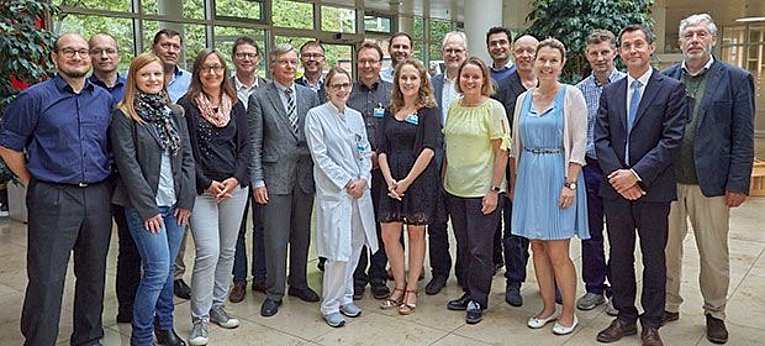Networking of the centers for rare diseases in Bavaria
In Bavaria, more than 600,000 people suffer from one of about 8,000 rare diseases. This is a significant part of the population. However, due to the rarity of the individual diseases, there has not yet been a comprehensive network for medical care. For patients, this often means a long period of uncertainty until a confirmed diagnosis is made, and thus a delay before appropriate therapy can be initiated. And the distance to the nearest expert is usually long.
Research into rare diseases and their targeted treatment is also difficult due to the low number of cases. For this reason, the five Bavarian centers for rare diseases have joined forces to form a network that aims to improve diagnosis and medical care for patients with rare diseases. This is done, among other things, through telemedical consults, also involving external experts. In addition, research into the diseases is to be supported.
What is BASE-Net?
BASE-Netz is an association of the five Bavarian centers for rare diseases in Würzburg, Regensburg, Erlangen and Munich. Together with the Center for Telemedicine Bad Kissingen, they are developing a software solution for Bavaria-wide IT medical networking. The three-year project is being funded by the Bavarian State Ministry of Science and the Arts as part of the Bayern Digital II master plan with a total of more than 1.75 million euros. Thus, BASE-Netz takes a pioneering role in the cross-center care of patients with rare diseases in the areas of telemedicine and patient data protection throughout Bavaria.
What are the goals of BASE-Netz?
With the help of newly created IT structures in the form of electronically recorded and transferable patient data, we want to initially improve specialist consultation for people with rare diseases throughout Bavaria, even outside the metropolitan areas. In the long term, we plan to facilitate the exchange of experts on rare diseases throughout Germany and internationally. In addition, a central database is to be established with pseudonymized patient data. Clinical studies on rare diseases are to be supported in a coordinated manner. Further goals are networking with the "Bavarian Genomes" project and extending the network to smaller centers for rare diseases at non-university hospitals.
The project will develop and implement an electronic patient record that can be viewed and edited outside of individual hospital information systems by both medical staff and patients. Other important functionalities are:
- Capture of structured data with the possibility of document and image exchange
- Connected research database with register function and pseudonymized data
- Data import and export to the hospital information system
- possibility of telecommunication with patients
- telemedical consults between experts
The electronic patient file including consent management, questionnaires, research database and networking platform is subject to the guidelines of a specially developed data protection concept and will only be put into operation after appropriate data protection approval.




